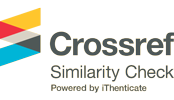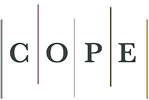The "sun of March 24", a new dawn for the Republic
Rumbo Social magazine, the anti-Peronist Christian Democrats and the beginnings of the National Reorganization Process (1976-1978)
DOI:
https://doi.org/10.35305/ac.v19i26.1624Keywords:
Coupd'état, catholicism, Rumbo Social, anti-peronismAbstract
This article is a contribution to the reconstruction of the civil support plot that summoned the coup d'état of March 24th, 1976. It analyzes, in particular, the group of leaders, academics and journalists who, shortly after the coup, began to edit Rumbo Social magazine, which, from its pages, not only welcomed the new government, but also glimpsed at the juncture of 1976 the opportunity to launch a radical transformation of Argentine society. The approach weighs their trajectories in spaces of catholic sociability, identifies the place they gave to religious values and the ecclesiastical hierarchy in the new situation and analyzes their representations about the coup, the democracy and the society in light of a strongly anti-peronist identity.
Downloads
References
Canelo, P. (2008). El proceso en su laberinto. La interna militar de Videla a Bignone. Buenos Aires: Prometeo.
Catoggio, M. S. (2016). Los desaparecidos de la Iglesia. El clero contestatario frente a la dictadura. Buenos Aires: Siglo XXI.
Cersósimo, F. (2015). El Proceso fue liberal. Los tradicionalistas católicos argentinos y el Proceso de Reorganización Nacional (1976-1983) (Tesis de Doctorado inédita). Universidad de Buenos Aires, Buenos Aires, Argentina. Recuperado de http://repositorio.filo.uba.ar/bitstream/handle/filodigital/3000/uba_ffyl_t_2015_898497.pdf?sequence=1&isAllowed=y
Di Stefano, R. y Zanatta, L. (2000). Historia de la Iglesia Argentina. Desde la Conquista hasta fines del siglo XX. Buenos Aires: Mondadori.
Di Stefano, R. y Zanca, J. (Comp.). (2013). Pasiones anticlericales. Un recorrido iberoamericano. Bernal: Universidad Nacional de Quilmes.
Fabris, M. (2018). La Democracia Cristiana y la Iglesia durante la última dictadura. Catolicismo, política y Derechos Humanos. Estudios Sociales, (54), 143-168. https://doi.org/10.14409/es.v54i1.7603
Ghio, J. M. (2007). La iglesia católica en la política argentina. Buenos Aires: Prometeo.
Lida, M. (2015). Historia del catolicismo en la Argentina. Entre el siglo XIX y el XX, Buenos Aires: Siglo XXI.
Morresi, S. (2010). El liberalismo conservador y la ideología del Proceso de Reorganización Nacional. Sociohistórica, (27), 103-135. Recuperado de https://www.sociohistorica.fahce.unlp.edu.ar/article/view/n27a04/299
Parera, R. (1986). Los Demócrata Cristianos Argentinos. Testimonio de una experiencia política. T. II. Buenos Aires: Leonardo Buschi.
Romero Carranza, A. (1980). El terrorismo en la historia universal y en la Argentina. Buenos Aires: Depalma.
Schenquer, L. y Dios, A (2020). Videla en Venezuela: participación civil y diplomacia cultural. Estrategias internacionales para refutar la “campaña antiargentina. América Latina Hoy, (86), 41-55. https://doi.org/10.14201/alh.22559
Spinelli, M. E. (2005). Los vencedores vencidos. El antiperonismo y la “revolución libertadora. Buenos Aires: Biblos.
Unzué, M. (2017). Derecho y derecha. Circulación de cuadros entre los ámbitos académicos de la Facultad de Derecho de la UBA y los gobiernos surgidos de los golpes de Estado de 1966 y 1976. Nuevos Mundos. Mundos Nuevos, Workshops.
https://doi.org/10.4000/nuevomundo.70873
Verbitsky, H. (2006). Doble juego. La Argentina católica y militar. Buenos Aires: Sudamericana.
Vicente, M. (2014) Una opción, en lugar de un eco. Los intelectuales liberal-conservadores en la argentina, 1955 – 1983 (Tesis doctoral inédita). Universidad Nacional de Buenos Aires, Buenos Aires, Argentina.
Zanca, J. (2006). Los intelectuales católicos y el fin de la cristiandad 1955-1966. Buenos Aires: Fondo de Cultura Económica.
Zanca, J. (2013). Cristianos antifascistas. Conflictos en la cultura católica argentina. Buenos Aires: Siglo XXI.
Published
How to Cite
Issue
Section
License

This work is licensed under a Creative Commons Attribution 4.0 International License.
Avances del CESOR ratifies the Open Access model in which the contents of scientific publications are fully available for free on the Internet, without temporary embargoes, and whose publishing costs are not transferred to the authors. This policy aims to break the economic barriers that generate inequities in access to information, and publication of research results.
Authors retain the copyrights of their papers and grant the journal right of first publication with the work simultaneously licensed under a Creative Commons that allows others to share the work with an acknowledgement of the work's authorship and initial publication in this journal.



















































